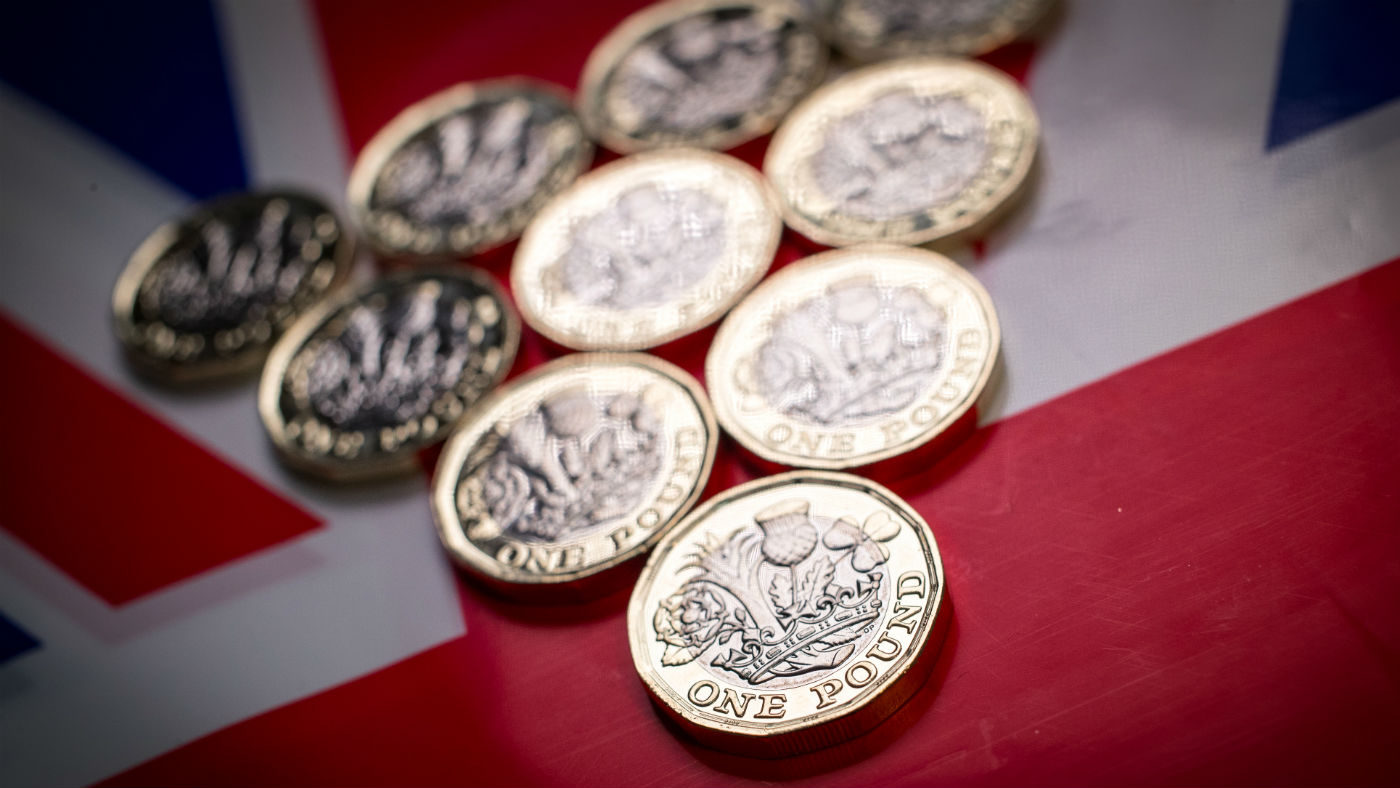UK wage growth hits 11-year high
Timing of pay rises for public sector workers credited for increase

A free daily email with the biggest news stories of the day – and the best features from TheWeek.com
You are now subscribed
Your newsletter sign-up was successful
UK wages rose at their fastest pace since 2008 in the three months through to June, according to the Office for National Statistics.
Welcoming the news, Chancellor Sajid Javid said: “Today's figures are another sign that despite the challenges across the global economy, the fundamentals of the British economy are strong as we prepare to leave the EU.”
The 3.9% increase in regular pay - which excludes bonuses - was up from last month’s figure of 3.6%.
The Week
Escape your echo chamber. Get the facts behind the news, plus analysis from multiple perspectives.

Sign up for The Week's Free Newsletters
From our morning news briefing to a weekly Good News Newsletter, get the best of The Week delivered directly to your inbox.
From our morning news briefing to a weekly Good News Newsletter, get the best of The Week delivered directly to your inbox.
The latest rise is being partially credited with the unusual timing of annual pay rises for public health workers last year, when a larger-than-usual increase was deferred until July.
Bloomberg says the data points to “on-going strength in the labour market” while Reuters says it shows the job market “shines”.
But The Guardian’s Phillip Inman isn’t so convinced.
“Employers haven’t increased pay by much for the bulk of workers,” Inman says. “The rise comes for those on the bottom pay scales and only then because the government increased the national minimum wage this year for more than two million workers by 4.9%.
A free daily email with the biggest news stories of the day – and the best features from TheWeek.com
“Pay rises for public sector workers in the spring, which were largely absent in previous years, also stand out as a fresh impetus for the rise in average regular wages.”
John Philpott, the director of the Jobs Economist consultancy, agreed that pay growth had been fuelled by spring pay rises for some public sector workers and people in jobs that benefited from the rising statutory minimum wage.
“The pick-up in pay growth should not therefore be interpreted as a sign that the labour market is tightening, which might signal mounting inflationary pressure. On the contrary, the jobs, vacancies and redundancies data suggest that demand for labour is cooling, albeit only slightly,” he said.
-
 ‘Poor time management isn’t just an inconvenience’
‘Poor time management isn’t just an inconvenience’Instant Opinion Opinion, comment and editorials of the day
-
 Bad Bunny’s Super Bowl: A win for unity
Bad Bunny’s Super Bowl: A win for unityFeature The global superstar's halftime show was a celebration for everyone to enjoy
-
 Book reviews: ‘Bonfire of the Murdochs’ and ‘The Typewriter and the Guillotine’
Book reviews: ‘Bonfire of the Murdochs’ and ‘The Typewriter and the Guillotine’Feature New insights into the Murdoch family’s turmoil and a renowned journalist’s time in pre-World War II Paris
-
 Can the UK avoid the Trump tariff bombshell?
Can the UK avoid the Trump tariff bombshell?Today's Big Question President says UK is 'way out of line' but it may still escape worst of US trade levies
-
 Five years on, can Labour's reset fix Brexit?
Five years on, can Labour's reset fix Brexit?Today's Big Question Keir Starmer's revised deal could end up a 'messy' compromise that 'fails to satisfy anyone'
-
 Why au pairs might become a thing of the past
Why au pairs might become a thing of the pastUnder The Radar Brexit and wage ruling are threatening the 'mutually beneficial arrangement'
-
 Brexit: where we are four years on
Brexit: where we are four years onThe Explainer Questions around immigration, trade and Northern Ireland remain as 'divisive as ever'
-
 Is it time for Britons to accept they are poorer?
Is it time for Britons to accept they are poorer?Today's Big Question Remark from Bank of England’s Huw Pill condemned as ‘tin-eared’
-
 Fastest UK wage rise in 20 years fails to match inflation
Fastest UK wage rise in 20 years fails to match inflationSpeed Read Widening gap between private and public sector wages is also stoking anger among striking workers
-
 Is Brexit to blame for the current financial crisis?
Is Brexit to blame for the current financial crisis?Talking Point Some economists say leaving the EU is behind Britain’s worsening finances but others question the data
-
 Why real wages have suffered ‘their sharpest fall on record’
Why real wages have suffered ‘their sharpest fall on record’Business Briefing Even pay rises aren’t preventing workers from feeling worse off – and that’s a big problem